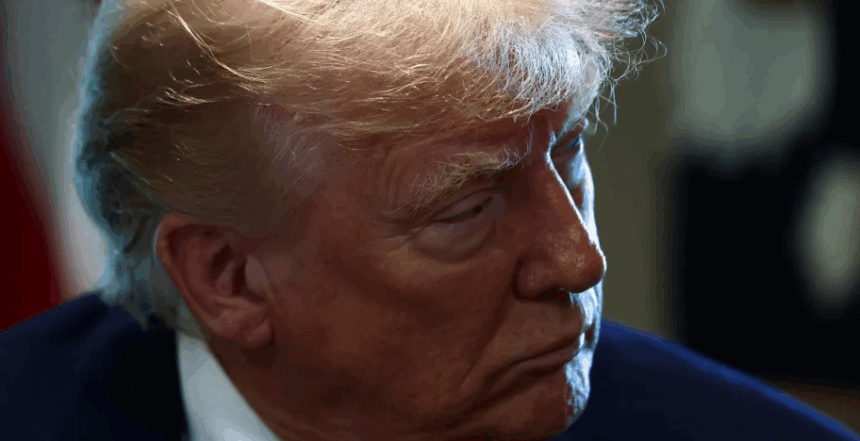As President Donald Trump embarks on his second term in the White House, a series of sweeping policy actions, controversial remarks, and defiance of institutional norms are fueling concerns about the future of American democracy and the rule of law.
In a recent interview aired Sunday on NBC’s Meet the Press, Trump responded with “I don’t know” when asked whether he was obligated to uphold the Constitution — despite swearing an oath to do so just months earlier. The comment is emblematic of what critics see as a growing sense of impunity and unchecked authority that defines his second presidency.
The Trump administration has increasingly ignored legal rulings, including a Supreme Court order regarding the return of an undocumented migrant. At the same time, Trump has directed executive power toward targets ranging from academic institutions to private law firms, as part of a broader offensive against what his supporters perceive as entrenched, liberal-dominated establishments.
Trump’s actions appear to be emboldened by his electoral success and his survival of multiple legal challenges and two assassination attempts. His administration is pressing ahead with initiatives such as a planned military parade for the Army’s 250th birthday — a spectacle scheduled for Trump’s own birthday in June. Critics liken the move to authoritarian displays common in autocratic regimes.
A social media post showing Trump dressed in papal robes and shared on both his Truth Social account and the official White House X account added further fuel to the debate. While supporters defend it as satire, others see it as symbolic of Trump’s self-styled infallibility and disregard for democratic norms.
On economic policy, Trump’s aggressive tariff agenda has begun to draw criticism even from some within his party. Despite promises of economic revitalization, the trade war with China has led to rising costs for consumer goods and supply chain disruptions. In the same NBC interview, Trump dismissed concerns over inflation and recession, suggesting Americans “don’t need to have 250 pencils. They can have five.”
Foreign policy also reflects an unorthodox approach. When asked about potentially using force to acquire Greenland — an autonomous Danish territory — Trump said he would not rule it out, raising eyebrows in the international community. Though he dismissed similar action against Canada, the very suggestion has alarmed allies and observers alike.
While Trump’s base remains loyal, and Republican lawmakers have largely refrained from challenging him publicly, some insiders admit concerns are growing privately. Democratic Sen. Mark Warner said GOP colleagues have voiced unease over the administration’s approach to national intelligence and foreign policy, but few have spoken out.
As Trump consolidates control and increasingly blurs the lines between presidential authority and personal power, critics warn that long-standing norms may be eroding — and the costs may not be fully understood until it’s too late.

